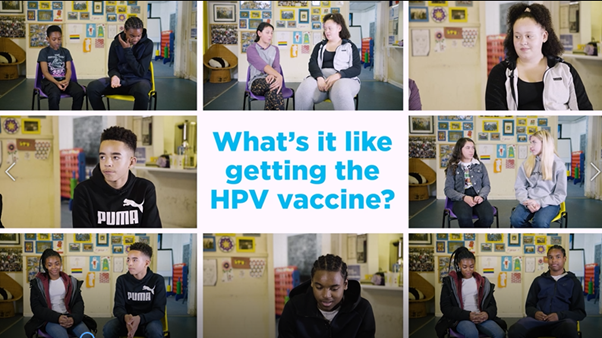Infection with human papillomavirus (HPV) can lead to cancers affecting men and women. From September 2019, the schools-based HPV vaccination programme has included young men aged 12 to 13 years. Our research shows some areas and population groups have lower coverage. Some young women attending schools where vaccination coverage is low had unmet information needs about HPV vaccination which may stop them receiving the vaccine.

Project aim
To develop a lesson about the HPV vaccine (EDUCATE) with young people, that can be used within the adolescent schools-based vaccination programme, tailored to increase vaccine coverage in areas and populations with lower uptake.
Anticipated impacts
Young people who attend the EDUCATE lesson may benefit from being empowered to make positive decisions which can help protect their health. If they are immunised against HPV, they will receive protection against an infectious disease that can lead to the development HPV-related cancers and genital warts.
The EDUCATE lesson could be incorporated into the Relationships, Sex, and Health Education (RSHE) curriculum and be made available to schools nationally.
If the EDUCATE lesson is shown to be effective and cost-effective at improving uptake, the findings of the study could be used to inform national policy to reduce population-level inequalities in uptake of the HPV vaccination programme.
Funder
Medical Research Council (MRC) Public Health Intervention Development Scheme
Project dates
April 2020 to June 2021
Research team
Lead researchers
Harriet Fisher, Dr (University of Bristol)
Tracey Chantler, Dr (London School of Hygiene and Tropical Medicine)
Research team
Suzanne Audrey, Dr (University of Bristol)
Adam Finn, Professor (University of Bristol)
Matthew Hickman, Professor (University of Bristol)
Louise Letley, Dr (UK Health Security Agency)
Sandra Mounier-Jack, Dr (London School of Hygiene and Tropical Medicine)
Clare Thomas, Dr (University of Bristol)
Julie Yates, Dr (UK Health Security Agency/NHS England)